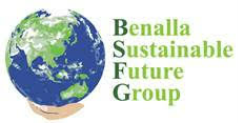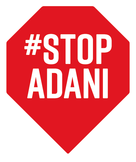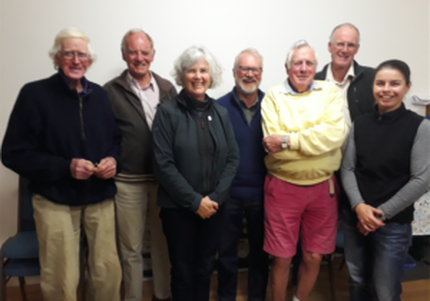|
While one response to watching this video might be 'why does everything have to be reduced to money terms', the capacity to impute value to natural resources such as the Great Barrier Reef to argue for sustainability can and should be important in influencing decision making. It is significant that funding has been made available to Deloitte to enable them to draw upon their skill sets to undertake and disseminate this analysis.
The Guardian has published article about and a 'letter' in the opinion section taking a counter view h -'The Guardian view on pricing the Great Barrier Reef a dangerous absurdity'. Another thought provoking counter view expressed by concerned activists - what if the amount hadn't been as significant as it was; if the full range of opportunity costs (value of opportunities lost) hadn't been included; if some -, perhaps many, are extremely difficult to value in money terms - would this have meant that the Great Barrier Reef would have been considered less worth saving? Bev Lee Why Stop Adani?
Coal Kills. The mining, transport, and burning of coal kills people. The world is moving on from this dangerous dirty fuel, more. Can't Trust Adani. From allegations of offshore tax dodging to inflated jobs claims and corruption, Adani has a history of shonky behaviour that has wrecked communities and the environment, more. Wrecks Our Climate. Right when we need to cut pollution, burning more coal will lead to more extreme weather and further bleaching of the Reef, more. Robs Our Water. Adani will draw billions of litres of water from the Great Artesian and other precious basins, for free, threatening farmers and groundwater, more. Trashes Indigenous Rights. Adani’s mine, rail and port project will destroy the ancestral lands, waters and cultures of Indigenous peoples in the region. And Adani does not have the consent of the local Wangan and Jagalingou people, more. One way of supporting StopAdani would be to write a letter to our parliamentarians. There are plenty of reasons for stopping the Adani coal mine both in the above information from Stop Adani and in our May Newsletter. See also our Advocacy page. Who to write too? This download has information on relevant Members of Parliament. This guide to writing to a politician, How to Get Politicians' Attention mentions that a handwritten, or typed and signed letter, is the most effective means of communication (other than a face to face meeting). Good luck with your letter writing. You might like to add a comment to this news article once you have written your letter. Maybe you are not ready to give up the plastic altogether but there are some easy ways to make a big difference in reducing the amount of plastic waste that is a huge burden to our environment. Recycling goes some of the way to easing the issue; however it is a much better option to avoid the use of plastic as much as possible.
Bring your own shopping bag I am thinking hessian is best. Or why not make your own out of left over fabric? In addition to bigger carryall bags, you can take your own reusable produce bags or don’t use produce bags at all. Ditch bottled water Such an easy way to reduce waste. Keep a refillable bottle handy and take it wherever you go. Bottled water is incredibly expensive compared to the tap. Say ‘no’ to bottled water. BYO Coffee Cup Coffee Cups are usually lined with a polyethylene making it difficult to be recycled. Take your own refillable cup....you may even get your coffee at a reduced price!! Choose cardboard over plastic bottles and bags Try pasta in a box instead of a bag, detergent in a box instead of a bottle. Even better, see if the cardboard is from a sustainable source. Say ‘no’ to straws They are just not necessary. Paper or stainless straws are an option. Get plastic out of the makeup drawer and bathroom Research microbeads. Aim for none in your products. Skip the disposable razor Re-think your food storage Try to use glass instead of plastic for fridge/pantry storage. Take your own containers for the left over restaurant meal. Use reusable sandwich wraps e.g.‘Keep Leaf’ eco-friendly bags. Use cloth nappies over disposable nappies Shop in Bulk Consider joining the BSFG Bulk Food Co-op. Keep your eye out for places with refill stations or bulk purchases. Think about fashion choices Do you really need another item of clothing? Consider clothes swapping with your friends and family. Check out the Op Shop. Travelling? Try to follow the practices you have at home. Carry a lightweight rolled-up reusable carry bag. Purify the tap water – choose to avoid the bottled water. My daughter recently travelled Sri Lanka, India and Nepal for 3 months and used a ‘Steripen’ handheld water purifier....was fantastic, easy to use, saved heaps of dollars, and heaps of plastic bottle waste. CHOOSE TO REFUSE Check out the ABC’s “War on Waste”: http://www.abc.net.au/ourfocus/waronwaste/ And the website for “Plastic Free July”: http://www.plasticfreejuly.org/ Also recommended reading: http://treadingmyownpath.com/2017/01/12/onlinezero-waste-plastic-free-stores/ Wendy Baker BSFG Plastic Bag Action Group Source BSFG's May Newsletter, 2017 As part of the involvement of Beyond Zero Emissions (BZE) we had a successful workshop on May 1st jointly conducted with Imogen Jubb from BZE involving a number of local stakeholders with an interest in renewable energy, including businesses and agencies. There were presentations from Totally Renewable Yackandandah and the Strathbogie Pumped Hydro Project as well as input from government agencies and Ausnet Services. A Baseline Emissions Report for Benalla that had been prepared by BZE was also presented. Many ideas about possible actions to eliminate emissions in Benalla were put forward under the three headings of: Buildings and Energy Efficiency; Solar and Community Energy; Utility Scale and Storage. These ideas will form the basis of a transition strategy to 100% renewable energy. REB has been discussing a communication strategy to connect with the community. The development of a website and design of a logo are seen to be important parts of this strategy. We have applied for a Climate Action Network Australia grant to fund these developments.
REB is also interested in making contact with youth and will seek assistance from Benalla Council's Youth Project Coordinator. We are also seeking to make contact with the Benalla developer who has a permit for a new housing development on the old woollen mill site. We would like to talk to him about the possibility of making this a 'model' development for solar access and energy efficient homes. John Lloyd This report was originally published in Benalla Sustainable Future Group's May Newsletter. |
|
|
|
Benalla Sustainable Future Group acknowledges the traditional owners of the land on which we live, work and meet, the Taungerang, Yorta Yorta and Bpangerang people
of North East Victoria, and pay our respects to their elders past, present and emerging.
of North East Victoria, and pay our respects to their elders past, present and emerging.








